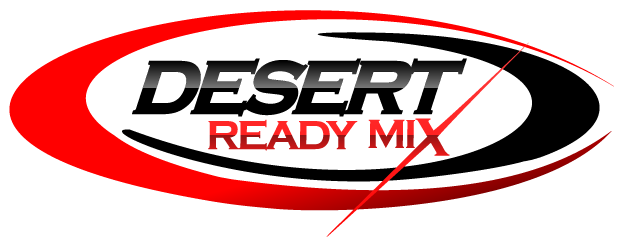“Sustainability” is a word often used, perhaps overused, when companies describe how “green” or responsible their business is. While the concept has many parts and definitions, at Desert Ready Mix our mission is simple – we’ve built and managed our business to have the greatest possible benefits with the lowest possible costs for the people and environments we touch.
Our decisions about equipment, land and water use, material recycling, work environments, and many other things all center on their net benefits to people and the planet. To be clear, we produce valuable products from natural resources with heavy equipment and a lot of energy. We don’t shy from that truth given our conviction that the benefits of what we do far outweigh the costs – both the real costs of our work and the unforeseen costs of an alternative provider or material that would be required to replace what we provide.
Every product and service our society provides comes at some cost. When you do business with Desert Ready Mix, you’re dealing with a family-owned company free to make decisions on more than just the financial bottom line. We are committed, now and in the future, to delivering value to our customers, our employees, our communities and our environment that ensure we aren’t simply making a profit at the expense of our children.
SUSTAINABLE DRM
ENVIRONMENT
BUILDING A GREENER TOMORROW, ONE MIX AT A TIME
At Desert Ready Mix, our mission is to provide high-quality, sustainable concrete solutions that not only support the infrastructure needs of our community but also minimize our environmental impact. We are committed to using eco-friendly materials, reducing waste, and promoting energy-efficient practices, ensuring that every batch we produce helps build a stronger, greener future for generations to come.
COMMUNITY
Our team leaders are some of the most experienced in the industry. They live where we work and recognize that supporting our neighbors and local communities is an integral part of our overall culture of excellence.
HEALTH & SAFETY
A sustainable workforce is a critical part of a sustainable business. With legal and regulatory compliance understood to be the minimum, we combine the latest technologies and business practices with a people-first philosophy to ensure our teams, and the places where they work, are as safe as they can be.
SUSTAINABLE CONCRETE
PRODUCTION
While portland cement is assigned from 3 to 8% of total global greenhouse gas emissions, it makes up only 12 to 15% of the mass of typical concrete. The rest is made of locally-available, and chemically-inert, aggregates (sand & rock) and water. Because ready mixed concrete has a short working life, it is necessarily made close to its point of use, avoiding the significant impacts and energy consumption required in transporting competing materials long distances.
Today, most concrete incorporates the use of recycled fly ash and/or other pozzolanic materials the can reduce the cement-intensity by 15 to 30% and actually improve concrete’s durability. Many production facilities have recycling systems to reuse waste or wash water, repurpose returned plastic concrete and even crush hardened waste concrete for reuse as new raw materials. Today’s concrete life-cycle is not just cradle-to-grave but cradle-to-cradle.
PERFORMANCE
Aside from water, concrete is the most widely used material in the world. It is made in every corner of the globe with whatever materials are found nearby. It does not rot, burn or support termites. It holds up skyscrapers, holds back oceans and moves people and goods safely around the planet. It provides cover from hurricanes, tornados and floods. It can be molded into virtually any shape and still support the weight of thousands of pounds per square inch. It is a miracle of modern science with a history dating back thousands of years, and it has remained a top choice among all building materials to this day – and yet, for some reason, many do not consider concrete to be “green”. This has much more to do with various groups attempting to define “greenness” in their own image than a thorough understanding the full life-cycle costs and benefits of concrete and other materials.
Sustainability is a better term for this subject than “green”, but that word itself has become overused and confused over the years. Consider some ways that concrete is unquestionably sustainable:
Concrete is considered an energy-intensive material due to its use of portland cement as a binder (cement contributes between 3 and 8% of total global greenhouse gas emissions), but cement makes up only 12 to 15% of the mass of typical concrete. The rest is locally-produced, and chemically inert, aggregates (sand and rock) and water.
With ultra-long service life, concrete requires far less maintenance and replacement than competing materials, saving significant time, resources and energy.
Concrete’s incredible resilience against fire, floods and wind is unmatched, saving money, resources and lives.
Plastic (unhardened) concrete and even crushed, recycled concrete re-absorb a significant amount of CO2 from the atmosphere, acting as a carbon sink to offset some of what is released in the production of cement.
Concrete’s “thermal mass” provides a smoothing of temperature variations across the day and night to reduce heating and cooling loads in buildings; lightweight concrete can even be produced to provide better insulating and fire-resistance values in walls.
In the life cycle of buildings, data show that energy consumed in their construction accounts for less than 10% of total, compared to more than 90% consumed over their useful lives. Even if concrete fit the “energy intensive” label, it’s superior performance in durability, low maintenance and energy efficiency win the sustainability battle over its lifetime.
LINKS & RESOURCES
NRMCA.org – National Ready Mixed Concrete Association
CEMENT.org – Portland Cement Association
NSSGA.org – National Stone, Sand & Gravel Association
CSHUB.mit.edu – MIT Concrete Sustainability Hub
AZROCKPRODUCTS.org – Arizona Rock Products Association
TRUCKING.org – American Trucking Association
ARIZONATRUCKING.com – Arizona Trucking Association
USGBC.org – US Green Building Council/LEED Building Programs

